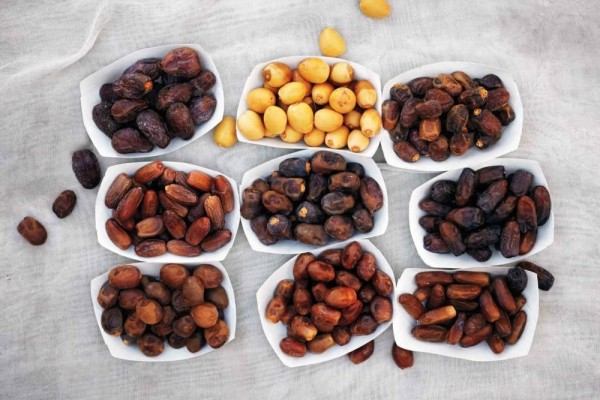Pembekal Kurma: Seasonality and Consumption Patterns

Introduction
When it comes to dates, Pembekal Kurma plays a vital role in providing a steady supply of this beloved fruit to the Malaysian market. In this blog post, we will define the term “Pembekal Kurma” and delve into the seasonal patterns of date consumption in Malaysia. Understanding the seasonality of date consumption can shed light on the preferences and cultural significance of dates in Malaysian cuisine.
Defining Pembekal Kurma
The term “Pembekal Kurma” refers to the suppliers or producers who cater to the demand for dates in Malaysia. These suppliers play a crucial role in ensuring a consistent supply of dates throughout the year. Pembekal Kurma Malaysia can range from importers who source dates from international markets to local farmers who cultivate dates within the country.
Seasonality of Date Consumption
In Malaysia, there is a noticeable seasonal pattern in the consumption of dates, particularly during significant cultural and religious occasions. One such occasion is the holy month of Ramadan, a period of fasting observed by Muslims worldwide. Dates hold special significance during Ramadan, as they are traditionally consumed to break the fast at sunset. The sweetness and nutritional benefits of dates make them a popular choice to replenish energy levels after a day of fasting.
During Ramadan, the demand for dates in Malaysia reaches its peak. Pembekal Kurma experiences a significant surge in sales and distribution to cater to the increased consumption during this period. The market is flooded with a wide variety of dates, both imported and locally produced, to meet the diverse preferences of consumers.
Apart from Ramadan, dates are also consumed during other festive occasions such as Eid al-Fitr and Eid al-Adha. These celebrations mark the end of Ramadan and the annual Hajj pilgrimage, respectively. Dates are often shared and enjoyed as a symbol of hospitality and blessings during these festive gatherings.
While the consumption of dates is higher during certain seasons and festive periods, it is important to note that dates are available and consumed throughout the year in Malaysia. They are enjoyed as a delicious and healthy snack, incorporated into various traditional recipes, and used as an ingredient in desserts, beverages, and savory dishes.
The Significance of Dates during Ramadan
Dates have been an integral part of Ramadan traditions for centuries. The practice of breaking the fast with dates dates back to the time of the Prophet Muhammad, who is reported to have broken his fast with dates and water. As a result, dates have become symbolic of the Prophet’s Sunnah (teachings and practices) and are considered a blessed food during Ramadan.
Breaking the fast with dates is known as iftar, the evening meal that marks the end of the daily fast. Muslims often consume dates and water or milk as the first thing after sunset, following the example set by the Prophet Muhammad. This act not only provides immediate nourishment but also helps to rehydrate the body after a day of fasting.
Nutritional Benefits of Dates during Ramadan
Dates are a natural source of energy and provide essential nutrients that are beneficial during Ramadan. They are rich in carbohydrates, particularly natural sugars like glucose and fructose, which are quickly absorbed by the body and provide instant energy. This makes dates an excellent choice for replenishing energy levels after a day of fasting.
Dates are also a good source of dietary fiber, which aids in digestion and helps regulate blood sugar levels. The fiber content in dates promotes feelings of fullness and can help control overeating during the evening meal. Additionally, dates contain various vitamins and minerals, including potassium, magnesium, and vitamin B6, which are important for maintaining overall health and well-being.
Cultural Traditions and Enjoyment of Dates during Ramadan
In addition to their nutritional benefits, the act of consuming dates during Ramadan holds cultural significance and is a cherished tradition for many Muslims. Sharing dates with family, friends, and neighbors during iftar fosters a sense of community and generosity. It is common to find dates arranged in beautiful platters or bowls, often accompanied by other traditional foods and beverages.
Dates are not only consumed in their natural form but are also used as ingredients in various traditional recipes and desserts. They are incorporated into dishes like maamoul (date-filled cookies), date cakes, and date puddings, adding a natural sweetness and depth of flavor. These date-based delicacies are enjoyed by families and loved ones, enhancing the joy and spirit of Ramadan.
Conclusion
Pembekal Kurma plays a crucial role in meeting the demand for dates throughout the year, ensuring a steady supply of this versatile fruit to Malaysian consumers. The seasonality of date consumption in Malaysia is influenced by cultural and religious occasions, with a notable increase in consumption during the holy month of Ramadan and other festive celebrations. Understanding the seasonal patterns of date consumption provides insights into the cultural significance and culinary preferences surrounding dates in Malaysia.
Key Highlights:
– Pembekal Kurma Malaysia refers to the suppliers or producers who provide dates to the Malaysian market.
– Seasonal patterns of date consumption are observed in Malaysia, with increased demand during Ramadan and festive occasions.
– Dates hold special significance during Ramadan and are traditionally consumed to break the fast.
– The demand for dates reaches its peak during Ramadan, leading to increased sales and distribution by Pembekal Kurma.
– Dates are also enjoyed during other festive occasions such as Eid al-Fitr and Eid al-Adha.
– Dates are available and consumed throughout the year in Malaysia, serving as a versatile snack and ingredient in various dishes.
– Understanding the seasonality of date consumption provides insights into cultural traditions and culinary preferences in Malaysia.